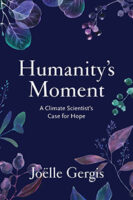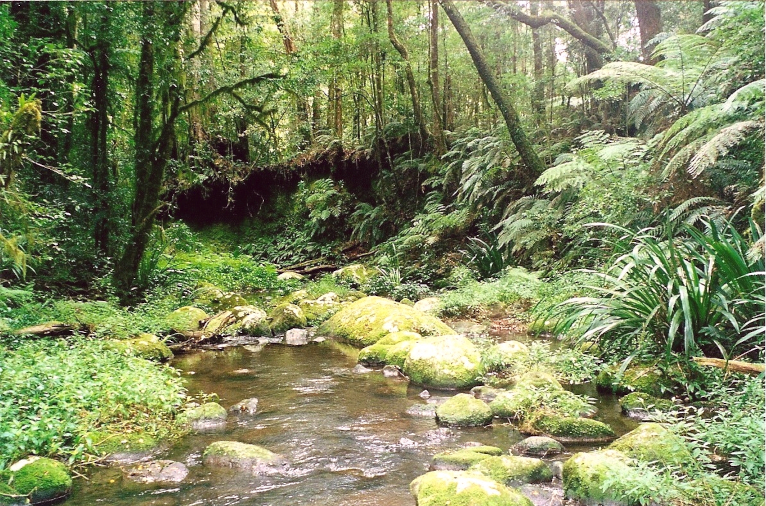 From Humanity’s Moment by Joelle Gergis. Copyright © 2023 Joëlle Gergis (First published in Australia in 2022 by Black Inc., an imprint of Schwartz Books Pty Ltd.). Reproduced by permission of Island Press, Washington, D.C.
From Humanity’s Moment by Joelle Gergis. Copyright © 2023 Joëlle Gergis (First published in Australia in 2022 by Black Inc., an imprint of Schwartz Books Pty Ltd.). Reproduced by permission of Island Press, Washington, D.C.
Prologue: Life on the frontline
As someone on the frontline of research on the climate crisis, I try to help people make sense of the latest results coming out of the scientific community. But when the new climate projections were published, I found it impossible to focus.
So, I wrote my way through it, and published a long-form essay in July 2020. I’d been afraid to publish such a personal piece, fearing my colleagues would think less of me for sharing my emotional response to our work. But I took heart from a quote by Rachel Carson, ecologist and author of the seminal book Silent Spring, first published in 1962:
It is not half so important to know as to feel . . . once the emotions have been aroused – a sense of the beautiful, the excitement of the new and unknown, a feeling of sympathy, pity, admiration or love – then we wish for knowledge about the object of our emotional response. Once found, it has lasting meaning.
In other words, there is power and wisdom in our emotional response to our world. Until we are prepared to be moved by the profoundly tragic ways we treat the planet – and each other – our behavior will never change.
As scientists, we are often quick to reach for more facts rather than grapple with the complexity of our emotions. Science can seem cold and complicated; scientists, detached and dull. But as the long history of humanity’s inability to respond to the climate crisis has shown us, processing information on a purely intellectual level just isn’t enough. I’ve come to realize that no amount of extra data or technical graphs is going to help people actually feel the grief of what we are facing. Although it’s not the accepted practice in our field, I felt compelled to share the immense loss I felt – not just as a scientist, but as a human being. Perhaps if I am honest about my own emotional response to our work, it might help others feel something too. In the words of American civil-rights activist Rosa Parks:
“Knowing what must be done does away with fear.”
When my article was published, I received an email from an IPCC colleague in a far-flungcorner of the world:
I’ve been deeply depressed since the meeting in Singapore . . . I almost lost my position here at the university because I could not care less about work knowing that we seem to be doomed. I just wanted to sleep and do nothing . . . I then realized I was depressed and . . . on a kind of autopilot, just doing the mere essential (of course that also included fulfilling the IPCC deadline in January) but everything looks black and void . . . and then I read your article, and I realize that I am not the only one in despair given how little time we have to make radical changes, and realizing that people are not keen at all to do so. I still worry, it’s still on my mind most of the time, but I can function somewhat normally now. I wonder how many of us feel like that, and are able to actually say it?
It’s a long-held myth that a credible scientist should be devoid of human emotion, presenting our work rationally, without commentary. Perhaps it’s part of the reason why the public discussion around climate change has been so dominated by the political right across the developed world – the environmental, social and cultural costs of capitalism have been dismissed in the name of economic progress for far, far too long. Given that humanity is now facing an existential threat of planetary proportions, and scientists are the people who really know exactly what’s at stake, shouldn’t that logically include acknowledging our sense of despair, anger, grief and frustration? Why are medical doctors praised for a good bedside manner, while climate scientists are dismissed as “alarmist” if we express our deep concern about the state of the world? Would anyone ridicule an intensive care nurse for feeling distressed if someone in their care died on their watch? Is it possible to witness the death of the Great Barrier Reef – the largest living organism on the planet – and not feel wild with desperation at the thought of it all?
* * *
My involvement in the IPCC process has been life changing. It’s been overwhelming to get a complete sense of how the planet’s climate is changing – on all levels, at all timescales, all over the world. The scientists I work with are aware that we might only know we’ve crossed critical thresholds in hindsight. The warning signs of tipping points are all there: the rapid melting of polar regions, the freshening of the North Atlantic Ocean, and widespread fires in the Amazon. Now, more than ever, we need more scientists on the frontline to sound the alarm, no matter how uncomfortable we may feel.
We know from the geologic record that 1.5 to 2°C of warming is enough to seriously reconfigure the Earth’s climate. In the past, such changes triggered substantial long-term melting in Greenland and Antarctica, unleashing 6–13 meters of global sea level rise lasting thousands of years. With the 1.2°C of global warming we’ve experienced so far, an alarming proportion of the world’s coral reefs have already experienced large-scale die-off. Between 2016 and 2017, the Great Barrier Reef lost approximately 50 percent of its shallow water corals following unprecedented back-to-back mass bleaching events. As there are long gaps in reef-wide monitoring, it is still unknown exactly how much more died during the mass bleaching that struck the reef again in March 2020, the most widespread event ever recorded in the region. And then, to the horror of the scientific community, in March 2022 yet another mass bleaching engulfed the beleaguered reef – the fourth since 2016. It is clear that the largest living organism on the planet is in terminal decline. It’s truly the stuff of nightmares.
Even if it were still geophysically possible to achieve the most ambitious goal of limiting warming to 1.5°C, we will still see the destruction of 70–90 percent of coral reefs that exist today. With 2°C of warming, 99 percent of tropical coral reefs disappear. An entire component of the Earth’s biosphere – our planetary life-support system – will be destroyed. The domino effect on the 25 percent of all marine life that depends on these areas will be profound and immeasurable.
Right now, current policies in place today will lead to 1.9–3.7°C of warming by the end of the century, with a best estimate of 2.6°C. This represents a catastrophic overshooting of the Paris Agreement targets, which were specifically developed to avoid “dangerous anthropogenic interference with the climate system.” If countries fully implement their long-term net-zero emissions targets, this best-case scenario could see global warming stabilize between 1.4 and 2.8°C by 2100, with 2°C considered most likely. The problem is there are no guarantees that countries will honor their commitments, as only fourteen of the 196 parties have formalized net-zero targets into legislation, meaning the majority of pledges are still not legally enforceable. To have a chance of limiting warming to 1.5°C by 2100, global emissions need to halve by 2030. This means the world needs to more than double its current emissions-reduction pledges to restrict warming to 1.5°C.
We have a hell of a job ahead of us.
* * *
Sometimes I’m unsure of how best to live my life in the face of the catastrophe that is currently unfolding. Between IPCC, research, teaching, and grieving for our planet, sometimes I feel I have nothing more to give.
As coronavirus lockdowns lift and national parks reopen, the first thing we do is pack the car and head for the rainforest. Driving up the windy access road of the Border Ranges National Park feels like going to check in with family after a disaster – we’re afraid of what we might find. As we stand at our favorite lookout, I find it hard to see through tears. My husband pulls me in close and whispers, “It’s still here. It’s still here.” This immense valley drenched in brilliant green; the rainforest we love so much.
These magnificent forests have survived for millions of years. My hope is that they can hang on, that the cavalry is on its way. As a climate scientist, I am doing everything I possibly can to respond to the distress signals from our natural world. If I live to look back at this troubled time, I want to say that I did all that I could, that I was on the right side of history.





